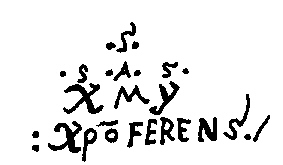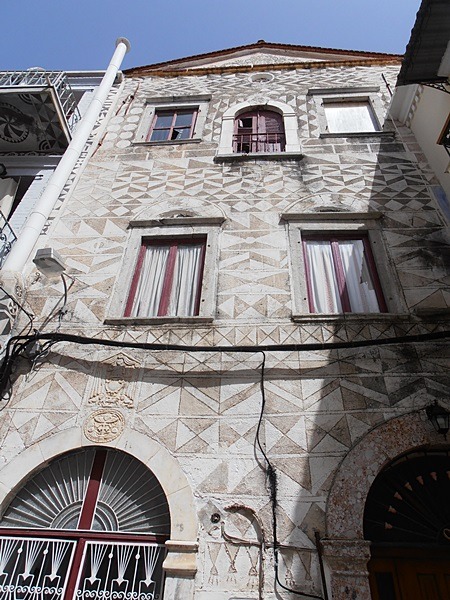Tomenable
Elite member
- Messages
- 5,419
- Reaction score
- 1,337
- Points
- 113
- Location
- Poland
- Ethnic group
- Polish
- Y-DNA haplogroup
- R1b-L617
- mtDNA haplogroup
- W6a
http://culture.pl/en/article/the-truth-behind-christopher-columbuss-polish-roots
Check also this book review:
https://indiereader.com/2016/10/learn-truth-discoverer-america-columbus-untold-story/
They mention that a DNA investigation is planned. It should be pretty easy to distinguish a Jagiellonian descendant from a son of an Italian craftsman, both based on autosomal DNA and on Y-DNA.
The Truth behind Christopher Columbus’s Polish Roots
2016/09/02
Manuel Rosa, a Portuguese historian, claims that the man who discovered America was not of Genoese origin as is commonly believed, but descended from a Polish King. Culture.pl investigates his hypothesis.
The twelve-toed king
It is told that 15th-century Polish King Władysław III had six toes on each foot. He was also the son of the great Polish king Władysław Jagiełło, who defeated the Teutonic Order in the famous battle of Grunwald, and ruled over a mighty empire that ranged from the Baltic to the Black Sea. He ascended the Polish throne in 1434 and received Hungarian crown in 1440 to boot. As King of Hungary he waged war against the Ottoman Empire and died, at the age of 20, in the 1444 Battle of Varna, a crucial episode of the conflict. The fight was lost by the Hungarians and their allies and the king himself was slain on the field after leading a charge into the enemy’s ranks. However, the ruler’s body was never formally identified, a strange occurrence considering his unusual feet. This led to speculation that the monarch actually survived and that the accounts and stories about his death were untrue. According to some, after the lost battle the baffled king travelled to the Portuguese island of Madeira in the Atlantic Ocean, where he lived incognito as Henrique Alemao (Henry the German) for the rest of his days.
Portuguese historian Manuel Rosa supports the abovementioned hypothesis. Moreover, he maintains that after the battle the Polish king not only came to Madeira but also had a son, Christopher Columbus. That’s right. After over 20 years of extensive research, Rosa, an employee of Duke University, is dead certain that the great navigator was of royal Polish descent. Fluent in many languages, the historian studied countless accounts and documents about Columbus written in Spanish, Portuguese, English and Italian before he published this revelation in a book entitled Columbus ‒ The Untold Story. Interestingly, his dubious-sounding claim has some pretty substantial backing …
A golden double cross
Let’s break down the main arguments used by Rosa to support his theory that America’s discoverer was in fact the son of the Polish king Władysław III. First, he points out physical resemblance. (Look at the portraits above and judge for yourself.) Historic descriptions of the two point out similarities in their countenances. Additionally, Rosa found that Columbus’ original coat of arms had gold anchors on a blue background. It just so happens that Segismundo Henriques, son of Henrique Alemao (who did actually live in Madeira, beyond any doubt), also had a coat of arms with gold anchors on a blue background. And here the plot thickens: rulers of the House of Jagiełło, Władysław III among them, used a golden double cross on a blue background as their coat of arms, a symbol which closely resembles Columbus’s anchors very easily.
It is also worth noting that in the 16th century the descendants of Henrique Alemao were officially acknowledged by the Spanish royal court being descended from royal Polish lineage. This coincides nicely with a 1472 letter sent by a Franciscan monk from Portugal to the grand master of the Teutonic Order, in which the author writes that he’s seen Władysław III on Madeira. Two other monks, who were sent to Madeira from Poland, claimed they recognized the king in Alemao. One might add that in Portugal the term ‘Alemao’ (German) was once applied to members of all peoples from beyond the Rhine, including Poles.
A Madeira native
Why would Władysław III want to live incognito in Madeira, and be Henrique Alemao the humble knight, and not in Central Europe, where he would be king? Rosa postulates that he simply became disenchanted with ruling after being defeated by the Ottomans, and longed for a different life. As the king of a mighty state, he would have had to go through much hardship after his abdication, hence the elaborate scheme. In this version of events Columbus protected his father’s privacy by concealing his own background, of which he was probably aware.
Rosa’s theory, although exotic, helps explain certain facts from Columbus’ life. Namely, his marriage to a Portuguese aristocrat which occurred long before he became famous for discovering America, his receiving of a broad education that enabled him to become an expert navigator, and his residing in Madeira for some time, near Alemao’s palace. The first two events would have been unlikely to befall a simple weaver’s son from Genoa. On the other hand, they very well could have, for a man of royal descent. Additionally, Rosa believes that the Portuguese court was privy to the secret of Alemao’s identity and supported both him and his son, Columbus.
All in all, Rosa presents a strong case for Columbus’s Polishness.
Author: Marek Kępa, August 2016.
Check also this book review:
https://indiereader.com/2016/10/learn-truth-discoverer-america-columbus-untold-story/
They mention that a DNA investigation is planned. It should be pretty easy to distinguish a Jagiellonian descendant from a son of an Italian craftsman, both based on autosomal DNA and on Y-DNA.








